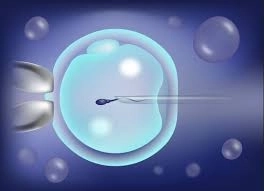
Artificial insemination and ICSI with Dr. Yasmine Ragab
Published on: 2025-10-02 | Written by: Dr. Yasmine Ragab Ahmed Consultant Obstetrician
Artificial Insemination and ICSI with Dr. Yasmin Ragab
What is Artificial Insemination?
Dr. Yasmin Ragab stresses that artificial insemination is considered one of the effective methods to help couples facing infertility, as it involves directly introducing sperm into the uterus to increase the chances of fertilization in a safe and organized way.
What is ICSI?
Dr. Yasmin Ragab explains that Intracytoplasmic Sperm Injection (ICSI) represents a breakthrough in infertility treatment, as a single sperm is injected directly into the egg under the microscope, confirming that this technique is particularly beneficial in cases of weak sperm quality or repeated fertilization failure.
The Difference Between Artificial Insemination and ICSI
Dr. Yasmin Ragab confirms that the main difference between the two procedures lies in the level of medical intervention. Artificial insemination is used when the fertility problem is relatively simple, while ICSI is applied in more complex cases to ensure the highest success rates.
Success Rates and Influencing Factors
Dr. Yasmin Ragab warns that the success rates of artificial insemination and ICSI depend on several factors such as the woman’s age, the quality of eggs and sperm, and the health of the uterus. She stresses that following the doctor’s instructions significantly increases the chances of success.
Post-Procedure Care
Dr. Yasmin Ragab clarifies that post-procedure care after artificial insemination or ICSI is just as important as the procedure itself. This includes continuous monitoring, adherence to prescribed medications, and avoiding physical strain, all of which contribute to stabilizing the pregnancy and increasing the chances of a safe delivery.

